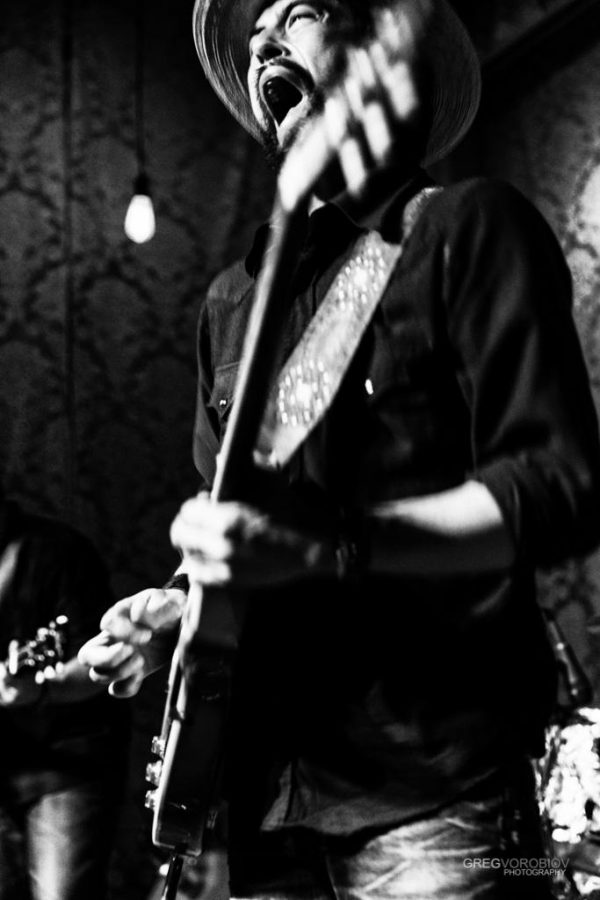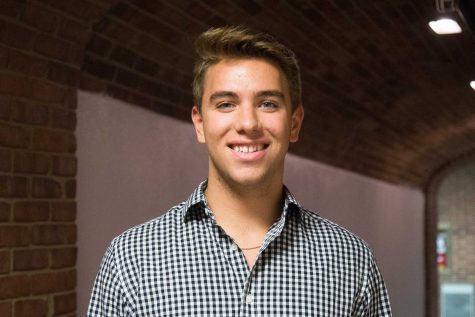While Nashville is usually known for its country music, the blues scene is considerably strong, as evidenced by B.B. King’s Blues Club & Restaurant in the middle of downtown. It should come as no surprise, then, that one of blues’ and roots-music’s most notable names-Jackie Greene- should come here. Greene will be playing at 3rd and Lindsley on November 6th, but before that we were able to talk to him about his career, his music, and the state of the industry.
The Vanderbilt Hustler: Do you have any special relationship or ties with Nashville?
Jackie Greene: Well yeah, i got a lot of friends Nashville, we play Nashville quite a bit. It’s always been a fun town for us. Definitely like Atlanta, Nashville, that route is a good route for us, we absolutely love to come to Nashville.
VH: You’ve toured with B.B. King, Mark Knopfler, and you’ve played in the Black Crowes. Do you feel like they have a large impact on the material that you record for your solo music, or is it more of the stuff that you listen to your own?
JG: Oh yeah, to a certain extent, I’m sure. I would say for the most part I’m definitely influenced by a lot of the old blues music that I listen to, but certainly playing in the Black Crowes for a year, and playing with Phil Lesh and Friends, same thing.
VH: As far as your influences, what do you think is the common thread between the artists that you keep coming back to?
JG: It’s pretty clear that we’re cut from the American roots music cloth, I guess you could say. It’s definitely what got me interested in music and helped me develop sort of my musical vocabulary. That would really be what our influences are and we’re really just the sum of our influences, if you will, and I’m not really different from the next guy in that respect.
VH: Where do you see American roots music nowadays?
JG: There’s definitely a taste for it, particularly in the live scene, there’s plenty of people who still have a thirst for that sort of thing. As far as making records and what records are selling, that’s a whole different conversation. There’s definitely not a strong market for that, but there was a time when it was maybe a little more commercially viable at that point, it’s probably not quite as much today. I kinda think that the world’s a bigger place and as long as you find a place to fit in you’ll probably be alright.
VH: With YouTube and Spotify being incredibly popular, do you think streaming is hurting the industry, or do you see it as a positive thing for the music industry?
JG: I don’t know, I’ve never been an internet sensation, I guess that’s the word you would use. I can’t really speak to that because I’ve never had a video or anything to really know what that’s like. I feel like there are actors or comedians or anybody that can get noticed, but I don’t think it’s anything where like ‘this is great’ or ‘this is not great’. But we go out and we do our work one fan at a time at all these club gigs and theater gigs and that’s totally fine.
VH: So you basically began your career playing in local bars, jamming with other bands. Now you’re back playing in another bar but with your own band. Does it feel weird? Is it comfortable?
JG: Yeah it’s comfortable. It’s different from fifteen years ago, it’s not even remotely the same thing, but it definitely doesn’t feel weird now. It doesn’t really matter we’re still playing music, and we mess around and we don’t take anything too seriously.
VH: Do you prefer these smaller bars where you’ll be playing in Nashville or the big arenas that you’ve played with the Black Crowes and Phil Lesh?
JG: Well the bigger ones of course, because, you know, more tickets.
VH: Do you feel like your approach to the music you’re making nowadays is different from when you were first starting out?
JG: Not like a drastically different approach. Maybe that I did a lot of it at my own studio. I’ve had it for maybe 8 or 9 years, 10 years. It helps that musicians don’t have to rely on companies. I’ve sort of made records relatively the same way I’ve always done them. I do a lot of the stuff myself, I do a lot of keyboards, stuff like that.
VH: Are there any artists that are new or that have started in say the past five to ten years that make you excited for the direction of that style?
JG: Well in Nashville right there is Jason Isbell, who’s been working hard for a really long time and he’s starting to have a lot of success. He’s just been out there doing his thing for a very very long time and people are finally catching on. Chris Stapleton kinda does that for country music in a lot of ways and he’s having quite a bit of success, so I think there’s a case for the future of that music. I don’t what the future for any of that stuff is because I really don’t hardly care if there’s a future for it. If not it doesn’t matter to me, I’m still going to do it anyhow. I feel pretty optimistic about it, in general.



